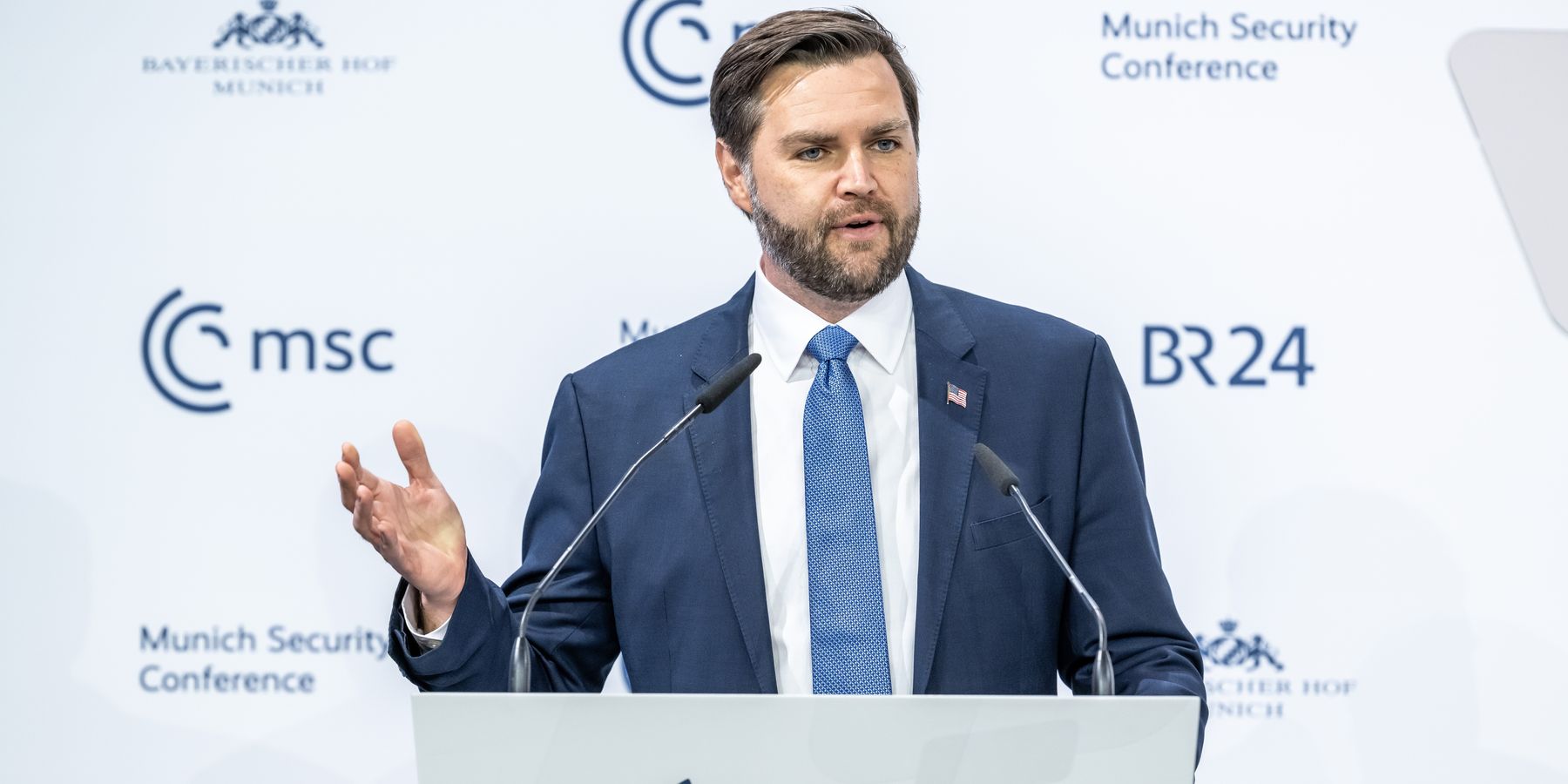MUNICH, GERMANY — The Munich Security Conference started this Friday in a city recovering from an attack in which a suspect drove his car into a crowd of people, leaving 36 people injured on Thursday morning.
The international meeting also takes place against the backdrop of the German parliamentary elections on Feb. 23. Friedrich Merz, the chancellor candidate of the center-right Christian-Democratic Union (CDU) — which comfortably leads the polls with around 30% of support — could be spotted in the first row of the conference hall. Merz held a short meeting with United States Vice President J.D. Vance earlier in the day.
Neither yesterday’s car attack, nor the coming elections, were left unaddressed by Vance in his speech Friday. The vice-president described the attack (committed by an Afghan asylum-seeker), as one of the “horrors wrought” by Europe's migration policies. He noted that “no voter on this continent went to the ballot box to open the floodgates to millions of unvetted immigrants.” In addition, Vance expressed his fears that the German election results could be annulled, similar to the Romanian presidential elections in November.
Vance also accused European leaders of abandoning the core democratic values that led to the Soviet Union’s defeat in the Cold War. "The threat I worry the most about vis-à-vis Europe is not Russia, it's not China, it's not any other external actor. What I worry about is the threat from within, the retreat of Europe from some of its most fundamental values, values shared with the United States of America," Vance said.
Although Vance had provided a preview to Friday’s remarks in an earlier Wall Street Journal interview, his words were received with some arched eyebrows in the media center serving as a working place for the journalists covering the conference. “Undiplomatic announcements” was the headline topping an article about Vance’s speech published by the liberal Munich newspaper Süddeutsche Zeitung.
The vice-president’s words also sent shockwaves in the conference hall. One of the first to respond was Boris Pistorius, the German defense minister. Pistorius, scheduled to speak less than two hours after Vance, described the vice-president words as “not acceptable.” He added that “democracy was called into question by the U.S. vice-president for the whole of Europe earlier.”
In the panel discussion that followed, which focused on Europe's defense policy, participants expressed bewilderment about the lack of attention to Ukraine in Vance’s speech.
President of the European Commission Ursula von der Leyen had taken a radically different approach earlier in the day focusing on what she sees as commonalities between the Trump administration’s approach to the Ukraine War and that of the EU. She noted that “both the EU and the U.S. want an end to the bloodshed. We want a just and lasting peace, one that leads to a sovereign and prosperous Ukraine. And Ukraine should be given solid security guarantees.”
In another attempt to establish a bridge with the Trump administration, von der Leyen added: “Ukraine needs peace through strength. Europe wants peace through strength. And as President Trump has made clear: the United States is firmly committed to peace through strength.”
Asked about whether European countries would increase defense expenditure to 5% of the GDP as demanded by Trump (the U.S. currently allocates 3.4% of its GDP to such a purpose), the president of the European Commission did not want to provide a specific figure. Still, von der Leyen announced that the Commission plans to allow extra fiscal room to the EU member states by activating the escape clause for defense investments.
The EU’s GDP increased by only 0.9% in 2024 (with negative growth in Germany, the bloc’s largest economy). It remains to be seen whether European citizens will support lifting strict EU rules on public debt for defense spending (and not for social policies, for instance) at a time of low economic growth.
Von der Leyen’s conciliatory tone towards the U.S. regarding Ukraine contrasted with her remarks about Trump’s tariffs policies. Building on a statement released early Friday, the Commission president announced her preference for a negotiated solution to avoid a trade war between the U.S. and the EU but noted that, if needed, “we will use our tools to safeguard our economic security and interests.”
After rumors that the initially announced meeting might not take place after all, Ukrainian President Volodymyr Zelenskyy had a bilateral encounter with Vice President Vance in the evening. Before the meeting, the Ukrainian leader said that his country wants “security guarantees” before any talks to end the war. Zelenskyy also noted that he is only willing to have an in-person meeting with Russian President Vladimir Putin after a common plan is negotiated with U.S. President Trump.
Meanwhile, CNN reported Friday that the Russian government is assembling a high-level negotiating team that would engage in direct talks with the United States to put an end to the war in Ukraine.- Neocons are melting down over JD Vance ›
- Why Trump picking Vance as VP is about US foreign policy ›
- Munich Dispatch: Zelensky calls for an 'Army of Europe' | Responsible Statecraft ›
- Munich Dispatch: Gaza issue banished to the sidelines this year | Responsible Statecraft ›
















